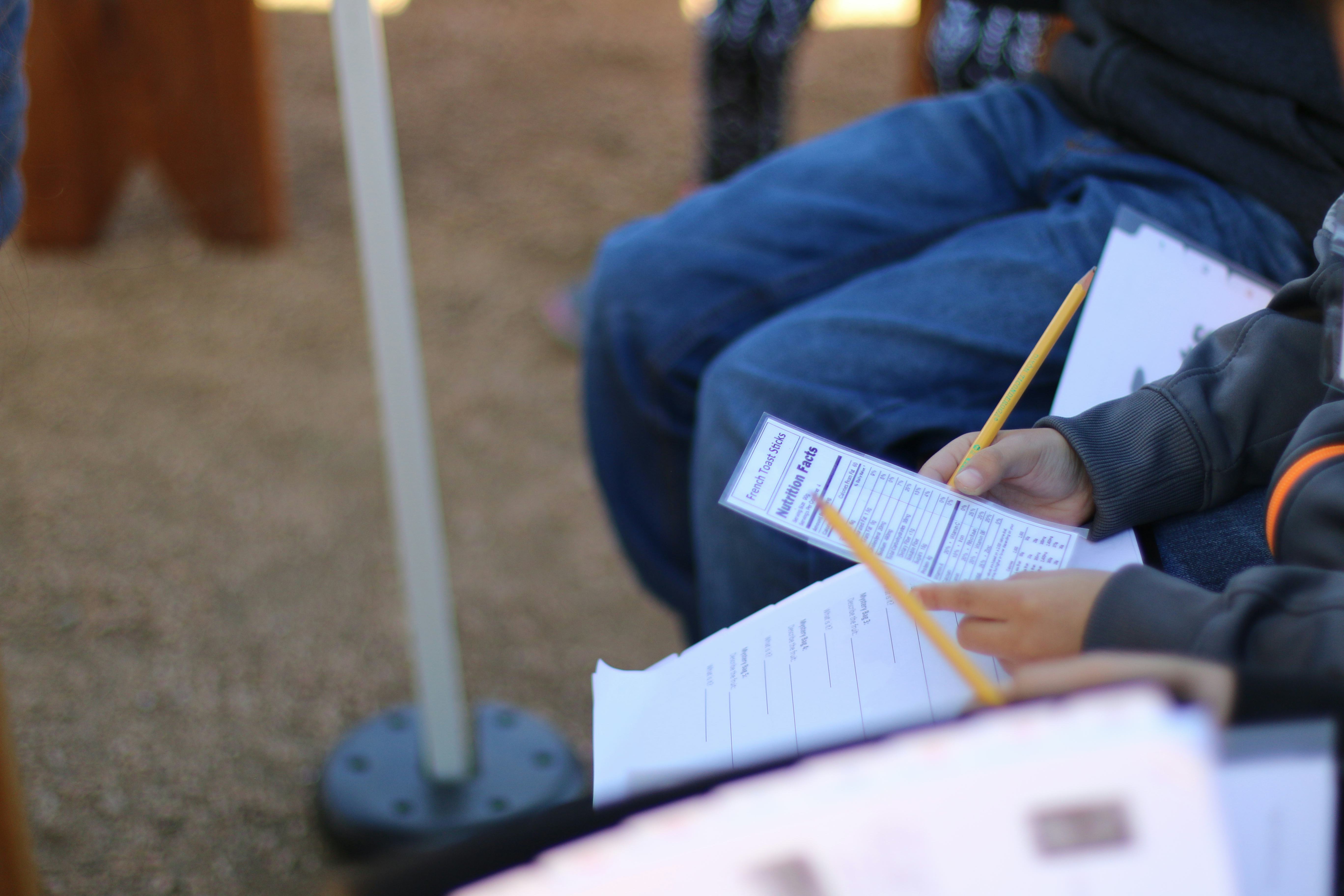UT Garden and Nutrition Student Interns say farewell
Students enrolled in Principles and Applications in Community Engagement (NTR 365) wrap up their year of teaching with local elementary students.

As most students at UT were studying for final exams and finishing end-of-semester projects, the students in NTR 365 were wrapping up the year in a very different way—planning their ‘farewell’ lesson for their elementary school classes, who they had been teaching since the fall. These undergraduates are not in the college of education, and in fact many of them had never worked with children prior to enrolling in this course. Rather, these are third- and fourth-year nutrition majors, and most of them plan to go on to medical school or pursue their Registered Dietitian credential after graduation.

Students in this two-semester course, Principles and Applications in Community Engagement, work in pairs and are placed in local elementary schools as Garden and Nutrition Interns, where they teach nine lessons with the guidance of an elementary school teacher.
Throughout the year, interns have an increasing amount of responsibility for creating and implementing their own lesson plans, complete with healthy kid-friendly recipes and TEKS-aligned learning objectives. These lessons focus on nutrition, gardening, and cooking, but within those themes the topics are wide ranging. Interns have taught lessons on Food Groups and Portions, Pollinators and Pests, Whole versus Processed Foods, Plant Lifecycles, Garden Geometry, Mindful and Intuitive Eating, and Composting among many others. By their ninth lesson, these interns have become experts at taking complex nutrition and horticultural concepts that they have learned at UT, and distilling them into a lesson that is clear, engaging, and meaningful to a group of elementary students.
The beneficiaries of this program are seemingly endless. The elementary students gain invaluable nutrition information and also spend the year being mentored by university students, which helps to make the goal of college seem much more attainable. The elementary teachers see firsthand how to use the garden as a teaching tool that can be seamlessly incorporated into their existing ‘scope and sequence’. The elementary administrators get assistance from the UT interns in maintaining and utilizing the gardens.
“So while other UT students had study sessions and pulled all-nighters to prepare for finals, our NTR 365 students were planning out their talking points for a lesson about the importance of eating as a family.”
Director, UT Outdoor Intern Program
And the UT student interns perhaps gain the most from this experience. At first, many of them don’t know what to expect from the class, and they feel admittedly terrified of public speaking/teaching a group of kids. As they teach more and more lessons, however, the fear is gradually replaced with confidence as the interns begin to realize their own potential as community nutrition educators. In the end, our UT students use their academic knowledge in a real-world setting, serve as mentors for very deserving elementary students, learn basic teaching principles from educators in their schools, gain valuable experience in a professional setting, and truly make an impact on the health of their community. By the end of the year, many students say that this class was the best they have taken during their tenure at UT.
It makes sense, then, that after a year of trepidation, growth, and unexpected discoveries, our interns feel the need to make their ninth and final lesson the best yet – both for their elementary students and for themselves. So while other UT students had study sessions and pulled all-nighters to prepare for finals, our NTR 365 students were planning out their talking points for a lesson about the importance of eating as a family. They were searching for activities to solidify (pun intended) the connection between fiber and healthy digestion. They were refining their definitions of ‘mindful eating’ versus ‘intuitive eating’. And they were preparing to say goodbye to a group of elementary children who had touched their lives in ways they could never have imagined.



